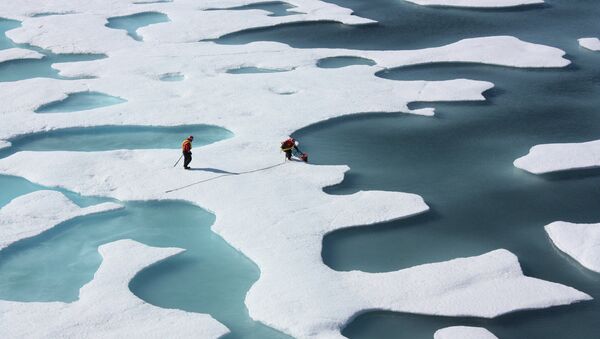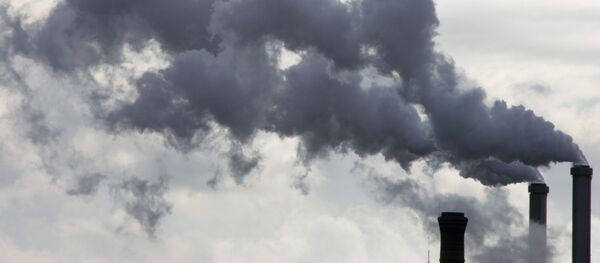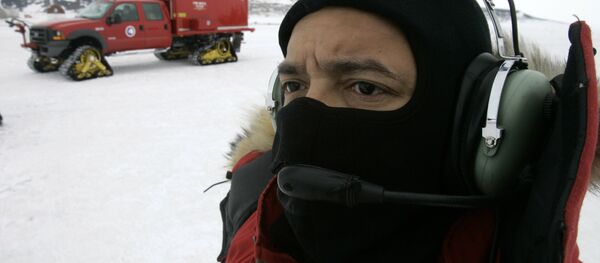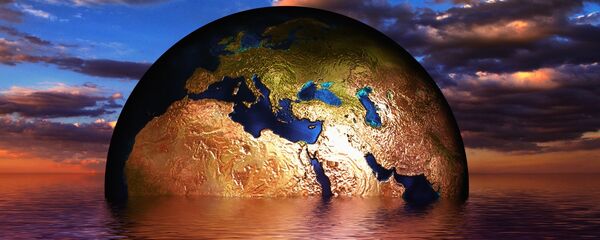"Next year or the year after that, I think [the Arctic] will be free of ice in summer, and by that I mean the central Arctic will be ice-free," Peter Wadhams, professor of ocean physics at Cambridge University, told the Guardian in August.
This will be the first time in 100,000 years the Arctic basin will be free of ice, the scientist said, and there will be dangerous regional and global effects. In his book, "A Farewell to Ice," published in September, Wadhams wrote that an ice loss/global warming feedback loop in the Arctic is accelerating faster than predicted, and that the consequences will be serious.
Bright white Arctic sea ice reflects 80 percent of the sunlight that strikes it, the National Snow and Ice Data Center (NSIDC) explains. The dark water under the ice, on the other hand, absorbs 90 percent of the sunlight that reaches its surface, heating the ocean and pushing temperatures higher. The more ice is lost, the more rapidly warming occurs, and the rate of change of sea ice has increased from 3 percent per decade to 8 percent, Wadhams told Alternet, in an October 1 interview.
Ice loss from areas north of Siberia indicates that more methane could escape from the seabed as the permafrost melts, while the loss of ice around Greenland in the summer encourages warm winds over the Greenland ice sheet, speeding the melting process and contributing to sea level rise, Wadhams said. In one of the scenarios explored by Wadhams, a radical loss of methane could lead to a sudden 0.6C jump in global temperatures, a very large figure, and one he calls "frightening."
Globally, ice loss leads to albedo reduction. Albedo is the measurement of a celestial body’s reflectivity; less reflectivity means more absorption of sunlight and solar radiation. "This has been calculated as equivalent to adding 25 percent to the warming effect of the greenhouse gases alone. Albedo reduction due to parallel snow area loss adds another 25 percent," Wadhams told Alternet.
On August 22, The Guardian reported that, having scoured the historical record for references to Arctic ice, British and American university scientists have plugged some of the holes in their understanding of historic ice cover, and that their efforts have revealed a record-breaking pace of ice loss. Arctic sea ice is it its lowest level in 125 years, they reported, and its decline is the fastest in recorded history.
This year’s seasonal minimum extent of Arctic ice has tied figures for 2007, the second worst year on record for summer ice coverage, at 4.14 million square kilometers, according to a September 15 NSIDC preliminary report. Wadham predicts that this amount will soon be less than one million square kilometers, at which point the ice will have effectively "disappeared."
"You will be able to cross over the north pole by ship," he told The Guardian. "There will still be about a million square kilometers of ice in the Arctic in summer but it will be packed into various nooks and crannies along the Northwest Passage and along bits of the Canadian coastline. Ice-free means the central basin of the Arctic will be ice-free and I think that that is going to happen in summer 2017 or 2018."
The 2012 record low for sea ice was 3.41 million square kilometers.
There is nothing to be done to prevent the ice from melting, or from breaching the internationally agreed-upon limit of a 2C temperature rise above the the preindustrial baseline, Wadhams warned. "[T]here is already more than enough CO2 in the atmosphere to cause a 2C warming," he detailed. "The only things we can do are to, first, put a sticking plaster on warming by use of geoengineering techniques to reflect more radiation—for example, marine cloud brightening—and second, to solve the problem properly by spending a lot of thought and energy developing a cost-effective method of direct air capture of CO2 from the atmosphere."






